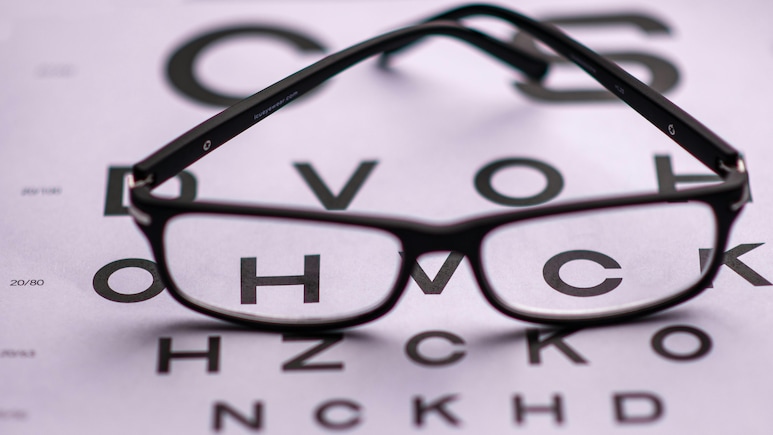
- Special eye drops may improve long-sightedness and reduce reliance on glasses
- Study involved 766 participants using pilocarpine and diclofenac eye drops twice daily
- Patients showed an average improvement of 3.45 lines on near vision eye charts
Using glasses could be a thing of the past as scientists have developed special eye drops that could help people with long-sightedness. A new study presented at the European Society of Cataract and Refractive Surgeons (ESCRS) in Copenhagen showed that people could read extra lines on eye test charts after using the drops and sustained the improvement for two years.
Common among people in their 40s and older, presbyopia is a form of long-sightedness which occurs when the lens of the eye becomes less flexible, leading to difficulty in focusing on close-up objects. Glasses or surgery can fix the issue, but many find wearing spectacles a nuisance and not everyone can afford an operation. The new eye drops, however, might provide a simple solution.
The study involved 766 people who used the drops containing pilocarpine and diclofenac, twice a day, usually upon waking and around six hours later, according to a report in The Guardian. The participants were divided into three groups, with each having a fixed dose of diclofenac, but the concentration of pilocarpine varied.
Study findings
An hour after the drops were administered, the patients showed an average improvement of 3.45 lines on the Jaeger eye chart (the measurement used for testing near visual acuity).
“Our most significant result showed rapid and sustained improvements in near vision for all three concentrations," said Dr Giovanna Benozzi, the director of the Centre for Advanced Research for Presbyopia in Buenos Aires
“Impressively, 99 per cent of 148 patients in the one per cent pilocarpine group reached optimal near vision and were able to read two or more extra lines.”
In the two per cent group, 69 per cent of the 248 patients were able to read three or more extra lines, and in the three per cent group, 84 per cent of 370 patients could read three or more extra lines.
Also Read | Apple iOS 26 India Release Date And Time: Check New Features, Eligible Devices And More
While the common side effects were temporary dim vision, irritation and headaches when the drops were administered, the study findings highlighted that it offers a safe, effective and well-tolerated alternative to traditional eyesight management.
Experts welcomed the findings but added that broader, long-term, multi-centre studies were required to confirm the safety and effectiveness.

